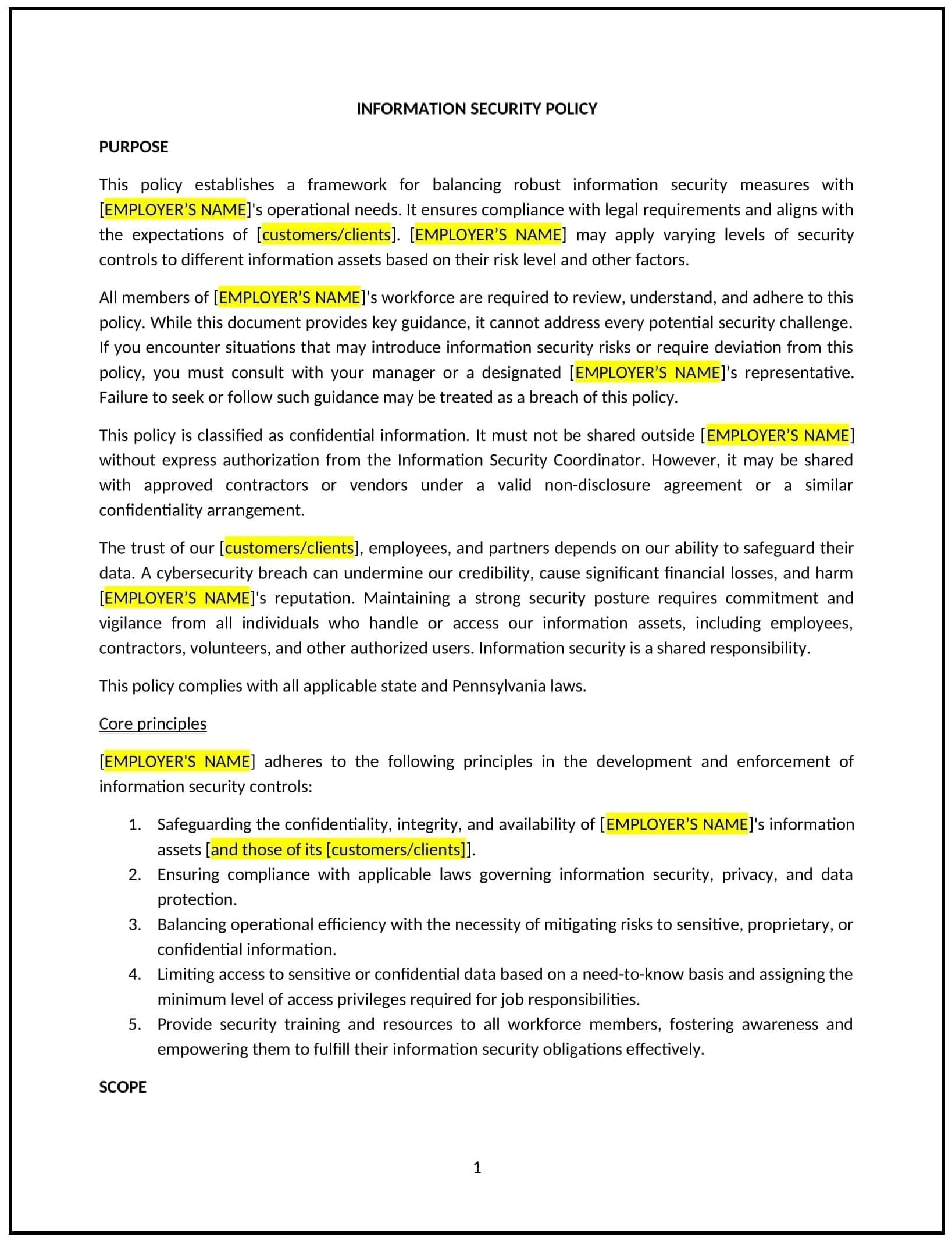Information security policy (Pennsylvania): Free template
Got contracts to review? While you're here for policies, let Cobrief make contract review effortless—start your free review now.

Customize this template for free
Information security policy (Pennsylvania)
This information security policy is designed to help businesses in Pennsylvania safeguard sensitive data and protect their digital infrastructure from unauthorized access, breaches, or cyber threats. Whether managing customer information, proprietary business data, or employee records, this template provides guidelines to ensure data security and align with Pennsylvania and federal regulations, such as the Pennsylvania Data Breach Notification Act.
By using this template, businesses can strengthen their cybersecurity posture, reduce risks, and protect stakeholder trust.
How to use this information security policy (Pennsylvania)
- Define security standards: Clearly outline the security protocols employees must follow, such as password requirements, encryption standards, and access controls.
- Include roles and responsibilities: Specify the responsibilities of employees, IT teams, and management in maintaining information security.
- Establish data protection measures: Detail how sensitive data should be stored, transmitted, and accessed to minimize risks.
- Include incident response procedures: Provide steps for reporting and responding to security incidents, such as data breaches or malware attacks.
- Reflect Pennsylvania-specific considerations: Tailor the policy to include state-specific regulations, such as requirements under the Pennsylvania Data Breach Notification Act.
Benefits of using an information security policy (Pennsylvania)
A well-structured information security policy supports data protection and operational integrity. Here's how it helps:
- Protects sensitive data: Safeguards customer, employee, and business information from unauthorized access or breaches.
- Reduces risks: Minimizes vulnerabilities by implementing clear security protocols and incident response procedures.
- Enhances trust: Demonstrates the business’s commitment to protecting stakeholder data, building customer confidence.
- Supports compliance: Aligns with Pennsylvania and federal data protection regulations, reducing legal exposure.
- Reflects local needs: Addresses Pennsylvania’s regulatory requirements and cybersecurity trends to support tailored protections.
Tips for using an information security policy (Pennsylvania)
- Communicate the policy: Share the policy with employees and provide training on how to follow security protocols effectively.
- Update technology: Regularly review and update security tools, such as firewalls, antivirus software, and encryption technologies.
- Monitor systems: Implement ongoing monitoring to detect potential vulnerabilities or breaches in real time.
- Provide training: Conduct regular cybersecurity awareness training to educate employees about phishing, social engineering, and other cyber threats.
- Review periodically: Update the policy to reflect changes in Pennsylvania laws, federal regulations, or emerging cybersecurity threats.